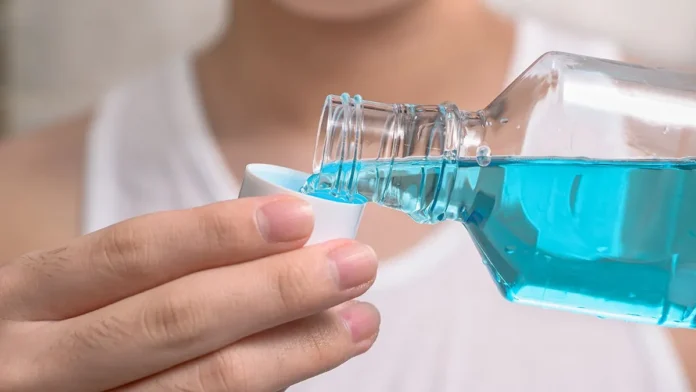Mouthwashes have become a staple in many daily oral health routines, offering the promise of fresh breath and clean teeth. Available in most supermarkets today, they are marketed as essential components of oral hygiene. However, recent discussions among health experts have raised concerns about their potential impact on oral and overall health.
Content creator Dr. Rupy Aujla has voiced his concerns about the regular use of mouthwashes, referencing several studies that highlight the adverse effects on the oral microbiome. According to Dr. Aujla, while mouthwashes may provide temporary relief from bad breath and contribute to oral hygiene, their consistent use can disrupt the balance of bacteria in the mouth. This disruption can lead to an imbalance in the oral microbiome, potentially increasing the risk of oral health issues such as cavities, gum disease, and bad breath.
Moreover, some studies suggest that certain ingredients commonly found in mouthwashes, such as alcohol and antimicrobial agents like chlorhexidine, may have harmful effects on oral health. Alcohol-based mouthwashes, for example, can dry out the mouth, leading to a decrease in saliva production. Since saliva plays a crucial role in maintaining oral health by washing away food particles and neutralizing acids, a decrease in saliva production can leave the mouth more susceptible to bacterial growth and tooth decay.
Additionally, antimicrobial agents like chlorhexidine, which are often used in prescription mouthwashes, may disrupt the natural balance of bacteria in the mouth and contribute to antibiotic resistance. While these agents can be effective in treating certain oral infections, their long-term use may pose risks to overall health.
Despite these concerns, many dental professionals still recommend the use of mouthwash as part of a comprehensive oral hygiene routine. However, they advise using them in moderation and choosing alcohol-free or natural alternatives whenever possible. It’s essential for individuals to consult with their dentists to determine the most suitable oral care products based on their specific needs and oral health conditions.
In recent years, researchers have been exploring the potential links between mouthwash use and broader health concerns beyond oral hygiene. Some studies have suggested associations between regular mouthwash use and increased risk of certain health conditions, including cardiovascular disease and diabetes. While more research is needed to establish causation, these findings underscore the importance of considering the broader health implications of daily habits such as mouthwash use.
Furthermore, the environmental impact of mouthwash production and disposal is another area of concern. Many commercial mouthwashes contain ingredients that can be harmful to aquatic life and ecosystems when they enter waterways through sewage systems. Additionally, the plastic packaging used for mouthwash bottles contributes to plastic waste, which poses significant environmental challenges.
As awareness of these issues grows, there has been a rise in demand for alternative oral care products that are more environmentally friendly and sustainable. Some companies are developing mouthwash tablets or powders that can be dissolved in water, reducing the need for single-use plastic bottles. Others are exploring natural and organic ingredients that are less harmful to the environment.
Despite the concerns surrounding conventional mouthwashes, it’s essential to recognize that not all mouthwash products are created equal. Some formulations may be safer and more beneficial than others, depending on their ingredients and intended use. Individuals who choose to use mouthwash should carefully read product labels and consult with dental professionals to select options that align with their oral health needs and personal values.
In addition to choosing the right mouthwash products, maintaining good oral hygiene practices is crucial for overall oral health. Brushing teeth twice a day with fluoride toothpaste, flossing daily, and visiting the dentist regularly for check-ups and cleanings are essential habits that can help prevent dental problems and promote a healthy mouth.
Ultimately, the decision to use mouthwash should be based on individual preferences, oral health needs, and considerations for broader health and environmental impacts. By staying informed about the potential risks and benefits of mouthwash use and making conscious choices about oral care products, individuals can support their oral health while minimizing adverse effects on the environment and overall well-being.

